Navigating the twists and turns of your career can feel overwhelming, but having a solid career development plan can make all the difference. I’ve seen firsthand how a well-structured plan not only clarifies your goals but also provides a roadmap to achieve them. Whether you’re just starting out or looking to advance in your field, a career development plan is essential for long-term success.
In this article, I’ll share a sample career development plan that you can tailor to fit your unique aspirations. By breaking down the components of an effective plan, I aim to help you take charge of your professional journey. Let’s dive in and explore how you can create a plan that aligns with your career ambitions and sets you on the path to achieving your dreams.
Key Takeaways
- Understand the Importance: A well-structured career development plan provides clarity and direction, helping you to align your aspirations with actionable steps for success.
- Conduct Self-Assessment: Evaluate personal strengths, weaknesses, skills, and values using techniques like skills inventories and personality tests to inform your career goals.
- Set SMART Goals: Establish Specific, Measurable, Achievable, Relevant, and Time-bound goals to enhance focus and accountability in your career path.
- Create Actionable Steps: Outline specific strategies and timelines for each goal, including relevant training, networking opportunities, and performance evaluations.
- Seek Support and Feedback: Actively gather insights from mentors and colleagues, which helps identify growth opportunities and maintain accountability.
- Be Flexible with Adjustments: Regularly review and adapt your plan to accommodate evolving goals and changes in the job market, ensuring continued alignment with your career ambitions.
Career Development Plan Sample
Understanding career development plans is crucial for anyone aiming to achieve their professional goals. A well-structured plan serves as a guiding framework throughout one’s career journey, offering clarity and direction.
Definition and Importance
A career development plan outlines the steps necessary for achieving specific career objectives. It involves assessing one’s skills, interests, and potential for growth. This plan is essential as it aligns personal aspirations with targeted actions, ensuring that individuals remain focused on their goals.
By setting measurable objectives, a career development plan not only fosters professional growth but also helps in identifying opportunities for advancement. It enhances career satisfaction and can improve job performance, making it a vital tool for both individuals and organizations.
- Self-Assessment: Evaluating personal strengths, weaknesses, skills, and interests.
- Goals: Establishing short-term and long-term career goals that are specific, measurable, achievable, relevant, and time-bound (SMART).
- Action Steps: Outlining specific steps and strategies needed to achieve each goal, including training, certifications, or networking activities.
- Timeline: Creating a realistic timeline for achieving goals and completing action steps, ensuring accountability and motivation.
- Resources: Identifying resources needed, such as mentors, professional organizations, or educational programs.
- Evaluation: Regularly reviewing progress and adjusting the plan as necessary to stay aligned with evolving goals and circumstances.
These components work together to create a comprehensive and actionable career development plan that drives professional success.
Steps to Create a Career Development Plan

Creating a career development plan involves systematic steps that help define and achieve professional ambitions. Essential aspects include self-assessment techniques and setting effective career goals.
Self-Assessment Techniques
Self-assessment is crucial for understanding personal strengths and weaknesses. Techniques include:
- Skills Inventory: List your skills, focusing on both hard and soft skills. Identify which ones align with your career interests.
- Interest Assessments: Use tools like the Holland Code or Myers-Briggs Type Indicator to determine your interests and preferred work environments.
- Feedback Collection: Seek constructive feedback from colleagues and supervisors to gauge your performance and areas needing improvement.
- Personality Tests: Conduct personality assessments to understand how your traits impact your career decisions and interactions.
- Values Reflection: Identify your core values, such as work-life balance, creativity, or financial stability, to ensure your goals align with what matters most to you.
Incorporating these self-assessment techniques helps create a clearer picture of your career landscape and positions you for targeted growth.
Setting Career Goals
Setting SMART (Specific, Measurable, Achievable, Relevant, Time-bound) goals provides clarity and motivation. Here are key steps to follow:
- Define Specific Goals: Clearly articulate what you want to achieve, such as obtaining a promotion or mastering a new skill relevant to your job.
- Make Them Measurable: Identify metrics to track your progress, such as completing a certification or gaining a certain level of experience.
- Ensure Achievability: Set realistic goals based on your current skills and available resources, considering any necessary training or development.
- Align with Relevance: Connect your goals to broader career aspirations and organizational objectives to maintain motivation and relevance.
- Establish a Timeline: Create deadlines for each goal to encourage accountability and provide a timeline for assessing progress.
Setting these clear career goals enhances focus and drives consistent progress, creating a structured pathway toward long-term success.
Example of a Career Development Plan Sample

A career development plan sample features structured goals with actionable steps tailored to individual aspirations. Below, I outline scenarios for short-term and long-term goals.
Short-Term Goals
- Enhance Skills: I’ll complete two online courses relevant to my field within six months to improve specific expertise.
- Expand Network: I’ll attend at least three industry networking events this year to build connections with professionals.
- Gain Experience: I’ll pursue one internship or volunteer position in my desired industry within the next three months to acquire practical experience.
- Update Resume: I’ll revise my resume and LinkedIn profile by next month to reflect my latest achievements and skills.
- Seek Feedback: I’ll request feedback from my supervisor on my performance quarterly to identify areas for improvement and growth.
- Achieve Promotion: I aim to attain a managerial position within the next three years by meeting key performance indicators and demonstrating leadership capabilities.
- Obtain Certification: I’ll earn a relevant certification, such as Project Management Professional (PMP), within two years to enhance my qualifications.
- Build Expertise: I’ll become a subject matter expert in my field within five years through continuous education and professional development opportunities.
- Mentor Others: I plan to start mentoring junior colleagues within three years to give back and solidify my leadership skills.
- Plan Transition: I’ll prepare for a career transition to a more senior role in a new organization within five years, researching potential companies and networking strategically.
Tips for Implementing Your Career Development Plan

Implementing a career development plan requires a proactive approach and ongoing commitment. By focusing on continuous improvement and making necessary adjustments, I can ensure my plan remains effective.
Seeking Feedback and Support
Seeking feedback involves actively requesting insights from peers, mentors, and supervisors. Gathering diverse perspectives helps identify strengths, areas for improvement, and potential blind spots. Engaging in regular discussions about my progress fosters accountability and encouragement. Utilizing structured methods like performance reviews, informal check-ins, and networking events enhances the feedback process. Building a support network, including industry professionals, can provide guidance and inspiration, facilitating growth in my career journey.
Adjusting Your Plan as Needed
Adjusting my plan involves periodic review and assessment to reflect changes in my career landscape. Regularly evaluating my goals and strategies ensures they remain relevant and achievable. Identifying obstacles or shifts in my interests demands flexibility, enabling me to realign my objectives with emerging opportunities. Incorporating new skills, experiences, or insights enhances my career development journey. Staying open to change ensures my plan evolves, which keeps it aligned with my aspirations and the demands of the job market.
A career development plan is more than just a document; it’s a powerful tool that can shape your professional future. By investing time in crafting a personalized plan, you’re setting yourself up for success. It helps clarify your goals and outlines the steps needed to achieve them.
Remember to regularly review and adjust your plan as your career evolves. This flexibility ensures you stay aligned with your aspirations and the ever-changing job market. Embrace the journey of career development with confidence and commitment, and watch as new opportunities unfold.

